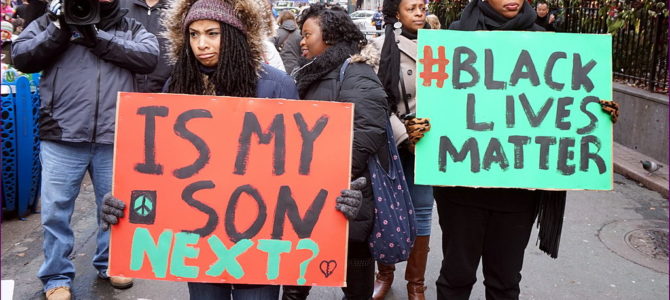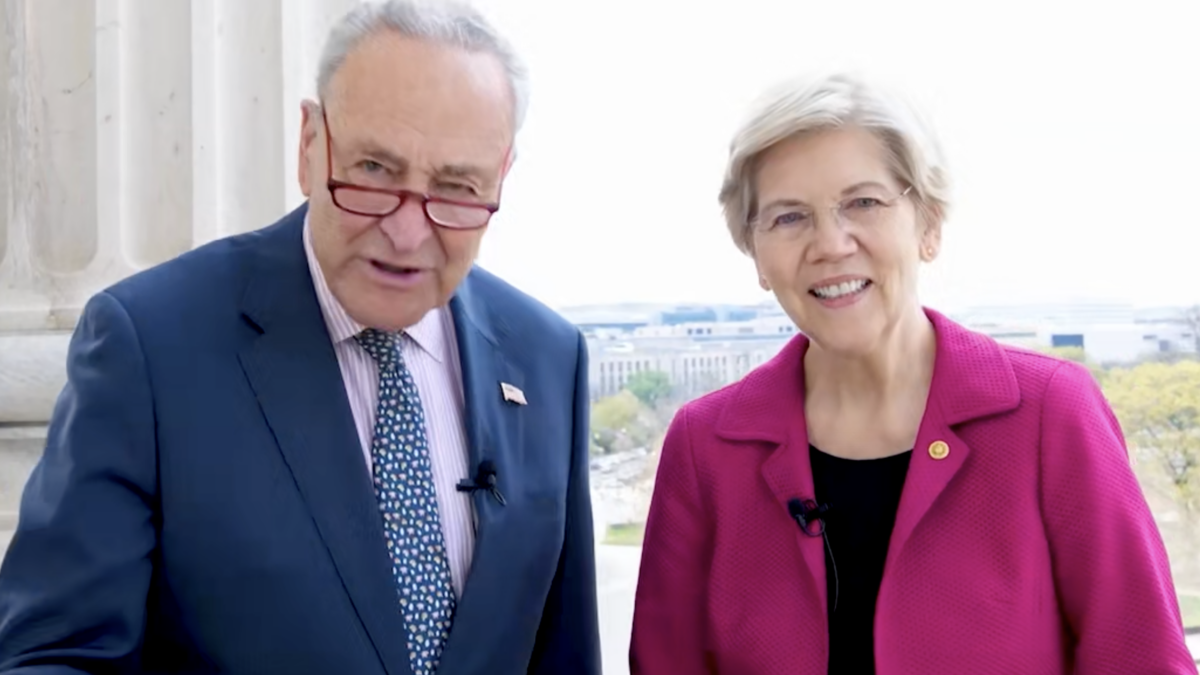
Millennials are the most likely fully adult generation to be registered as independents, and the most likely to vote for Democrats. A great part of this is due to biases in education and media, but blame also rests on the shoulders of Republican candidates, who have spent decades underappreciating the implications that changing U.S. demographics have for the party.
After Mitt Romney’s 2012 loss, the Republican establishment released an autopsy stressing the importance of Republicans working to make inroads with the country’s growing demographics, but the Republican base instead doubled down on the aggressive rhetoric and hardline policy stances that the leadership said was alienating the party from young voters.
Ever since the conservative movement came to dominate Republican politics, politicians have been able to rest assured that they will be able to win elections with rural and suburban votes. This wouldn’t have been a problem if the party hadn’t simultaneously ignored other demographics, withdrawing almost unilaterally from the urban communities that now dictate so much of our political lives.
Those voters are now reaching out. We could be< in a time of change, as this video from Chicago and the surprise primary win of Republican John James in Michigan suggest. Here are some ideas for pushing things like this closer to a tipping point.
The people of Chicago make desperate plea to @realDonaldTrump for help, slam Mayor Rahm Emanual for helping non-citizens first. pic.twitter.com/psM0NQsCM3
— Daily Caller (@DailyCaller) August 3, 2018
Let’s Face It: Most Republican Voters Are Pretty Old
With the absence of Republicans willing to put effort into changing hearts and minds, Democrats have been able to present a generation of young people a vision of the Republican Party that is neither accurate nor flattering. Overwhelming majorities of people who live in urban communities, and a budding majority of suburbanites, favor Democrats, and are openly hostile to even the prospect of supporting the Republican Party.
Democrats paint Republicans as either disdainful patricians or bigoted yokels. Regardless of the validity of this view, it is the prevailing perception among young people. The Republican Party is buoyed by members of the Silent and Baby Boomer generations, a clear problem given that even the youngest of the Boomers are well into their 50s and the oldest of the Silents are on the greater end of their 80s.
Republicans can no longer sit idly by with the voters they currently have. If the Republican Party has any future in this country, they must busy themselves with the hard work of actually convincing people of the superiority of their ideals.
Stop Dismissing This Problem with Insulting Responses
Often when this demographic problem is brought up, many on the Right dismiss youthful and minority hostility to the GOP as the outgrowth of brainwashing in school and a desire to retain government benefits. This of course disregards that majorities of none of these groups receive any government benefits.
Conservative commentators like Candace Owens, Dinesh D’Souza, and Charlie Kirk attempt to paint Democrats as the actual racists and urge black people to “escape the Democrat plantation.” The insulting nature of these appeals aside, this is as close to a campaign pitch that many prospective voters of color hear, and it is painfully tone deaf.
This implies people of color support Democrats not because they have legitimately been convinced of liberal ideals, but because they, as a collective, are too naive to determine when they are being manipulated. Insulting the intelligence and agency of the people you are trying to get to switch parties isn’t exactly a winning strategy.
Yes, urban voters are inculcated with liberal messaging their entire lives, especially if they live in Democratic machines like Chicago or New York, and often were educated in public schools and get their political information from mainstream media. But one of the reasons many buy into the messaging is that they are never presented with an alternative. If Republicans want to win in these areas, they must actively go and sell the merits of conservatism.
Get Out There and Make the Case
To convince more voters that conservatism at the very least doesn’t deserve their ire, Republicans have to start running in the often unchallenged local and state races. While Barack Obama was president, Republicans gained 12 governorships, but generally because of high Republican turnout rather than active attempts to change hearts and minds.
Yes, initially those who run against Democrats in these areas will lose, but by presenting an alternate perspective, many disillusioned voters will be able to find a home. In the last presidential election, 24 percent and 18 percent of people in Chicago and New York City, respectively, voted for Trump. Those are people who, if given the chance, might throw their support behind a local Republican candidate for alderman or the state legislature.
Another worthwhile effort would be going to high schools to talk with juniors and seniors before their political predispositions solidify. That is how you build a base. Tennessee was solidly Democratic up until after 2008, when Republicans made a concerted effort to challenge incumbents and bring the conservative message to new ears. Conservatives can’t complain about extremely liberal bastions if no effort is going to be put into reversing the trends.
Republicans’ Double Standards Look Horrible
Another great impediment to Republicans making inroads with minority groups is their perceived hypocrisy on government intervention and identity politics. Many on the Right have no problem giving taxpayer dollars and sympathetic rhetoric to the opioid crisis as it rips through white, rural communities, but often respond to drug abuse in minority areas with either listlessness or vindictive criminalizing that breaks apart families and uproots lives.
It is also not lost on minority voters that while the most powerful and influential Republicans staunchly support the corporate welfare of ethanol subsidies and steel tariffs, they scoff at the idea of similar government action in non-rural environments, allowing manufacturing jobs in places like Chicago to die without such clamor.
This is not an argument for the Republican Party to bolster protectionism, but it is an acknowledgment that whatever the policy position, the standard needs to be perceived as being applied even handedly. Otherwise, such double standards appear to evidence racial undertones and alienate those who would otherwise be responsive to Republican positions on foreign policy and economics.
These difficulties extend to immigration as well, where Republican rhetoric can spur revulsion from minority voters. Starting a conversation about such a complex issue with “They’re not sending their best…. They’re bringing drugs. They’re bringing crime. They’re rapists. And some, I assume, are good people” is not an effective way to start a productive conversation or endear oneself to a population. It’s a way to appeal to the tribal impulses of rural voters at the expense of a largely non-white demographic.
This proves especially wrongheaded considering that Latino Americans are very open to voting for Republicans depending on their approach to immigration. Take California and Texas, the two largest states with two of the largest immigrant and Latino populations. In California, 63 percent of Latino voters are Democrats, compared to 16 percent who identify as Republicans. By contrast, in Texas, only 37 percent of Latino voters consider themselves to be Democrats, compared to 21 percent who are Republicans.
Look, Donald Trump’s Remarks Are Truly Offputting
The divergence can be traced back to 1994, when Republican Gov. Pete Wilson of California vociferously supported Proposition 187, “a ballot initiative in 1994 that sought to deny state services to unlawful residents, including free schooling for some 300,000 children, and sought to order teachers and doctors to report pupils and patients who might lack legal status.” Regardless of whether the measure was racist, it did irreparable damage to Latino perceptions of Republicans in the state.
This is the opposite of the approach taken by Texas Gov. George W. Bush, who went out of his way all throughout his governorship and presidency to not only make Latinos feel welcome, but to actively recruit them. As a result, Republicans have a maintained a monopoly on statewide office in Texas since and will continue to dominate well into the future.
The Republican Party should not struggle with minority and women voters the way that it does, but often the party’s rhetoric alienates potential voters. According to polling, more than 80 percent of black people, 75 percent of Hispanics, and slightly less than 50 percent of white people think the president is racist. The same can be said of women who, regardless of political affiliation, disapprove of Trump more than their male counterparts do.
This disapproval stems directly from the president pretending not to know who David Duke was during the campaign, drawing moral equivalencies in the wake of the Charlottesville murder, making degrading offhand remarks about countries that are primarily occupied by people of color, and cruel treatment of asylum seekers at the border. Voters are told constantly that Republican are bigoted or insensitive to people with whom they differ, so when they see the head of the party speaking and behaving the way that he does, it only confirms their suspicions.
The ‘All Lives Matter’ Response Says You Don’t Care
Republicans also hurt themselves on criminal justice reform and the Black Lives Matter (BLM) movement. There is much to object to from BLM, ranging from their actual policy positions to often vitriolic rhetoric, but the apathy with which Republicans are seen to regard its driving issues of over-incarceration and police brutality only solidify in the minds of black voters that the GOP is hostile to their prospective well-being.
Consider the asinine typical response to people saying “black lives matter”: “All lives matter.” To use this slogan is to argue in bad faith and dismiss legitimate concerns from people of color about the abuse of power by enforcers of the law. No one who chants “Black Lives Matter” is implying that black lives matter exclusively, especially, or supremely. They are simply saying that black lives matter also, and the current judicial system does not behave accordingly.
Regardless of whether you agree, ignoring the context to scornfully respond with “All lives matter” sends the message that Republicans have no interest in a good-faith conversation to find solutions. Criminal justice reform and increased oversight of state run enforcement agencies like the police should be at the top of Republicans’ state legislative priorities. The GOP is often heard decrying government overreach that violates people’s freedoms and the unaccountable nature of government bureaucrats.
Yet on subjects such as the devastating effects of the War on Drugs on communities of color and the lack of accountability for local police officers when they do step out of line, Republicans routinely forfeit their built-in advantage. They open themselves up to accusations of apathy at the least and racism at worst.
All people should honor and respect the police, of course, but maintaining that the only way to do so is to shy away from legitimate criticism in statistically uncommon independent situations like shootings of unarmed black people creates a false dichotomy. It is not disrespectful of the police to hold them to high standards of conduct, especially considering that taxpayers fund their salaries and pensions. If anything, it is insulting to refuse to offer even legitimate critiques regarding the militarization of many police forces.
What Republicans Should Do Instead
If Republicans are to make inroads and counteract decades of damages, it must be done first at the local level and with the necessary adjustments in rhetoric. Joining local school boards, running for alderman (perhaps first as an independent), and contesting mayoral races that often comprise only liberals with identical politics working to outspend one another, are all vital to the longevity of the party in the face of a changing country.
When campaigning in these areas, just like anywhere else, Republicans will have to tailor their message to win. When in urban areas, emphasis should be put on criminal justice reform, an issue where Democrats have a rhetorical monopoly, rather than the typical tough on crime message. Zealous over-prosecution of minor offenses have filled jails and prisons with decent people who will for the rest of their lives struggle as a result of their incarceration.
As an alternative, Republicans can move to the forefront of ending the issue by taking a more libertarian approach to drug usage and the government’s response. There are also opportunities to join Democrats, and endear the party to potential voters, in restructuring the justice system. Eliminating mandatory minimums and bail reform are issues that small government conservatives should passionately champion.
The same can be said for immigration reform, where the real obstacles are hostile rhetoric and a seemingly rigid lack of compassion. Rather than diminishing the reasons minorities tend to vote Democratic, showing constituents that there is clear ideological overlap is a much more effective means of swaying voters. This doesn’t require any ideological changes from conservatives, but is contingent upon Republicans going out of their way to highlight how these communities would benefit from having Republican officeholders.









